Do roof boxes increase fuel consumption? Technically, yes! But the effect can be reduced by using highly Aerodymanic Roof Boxes.
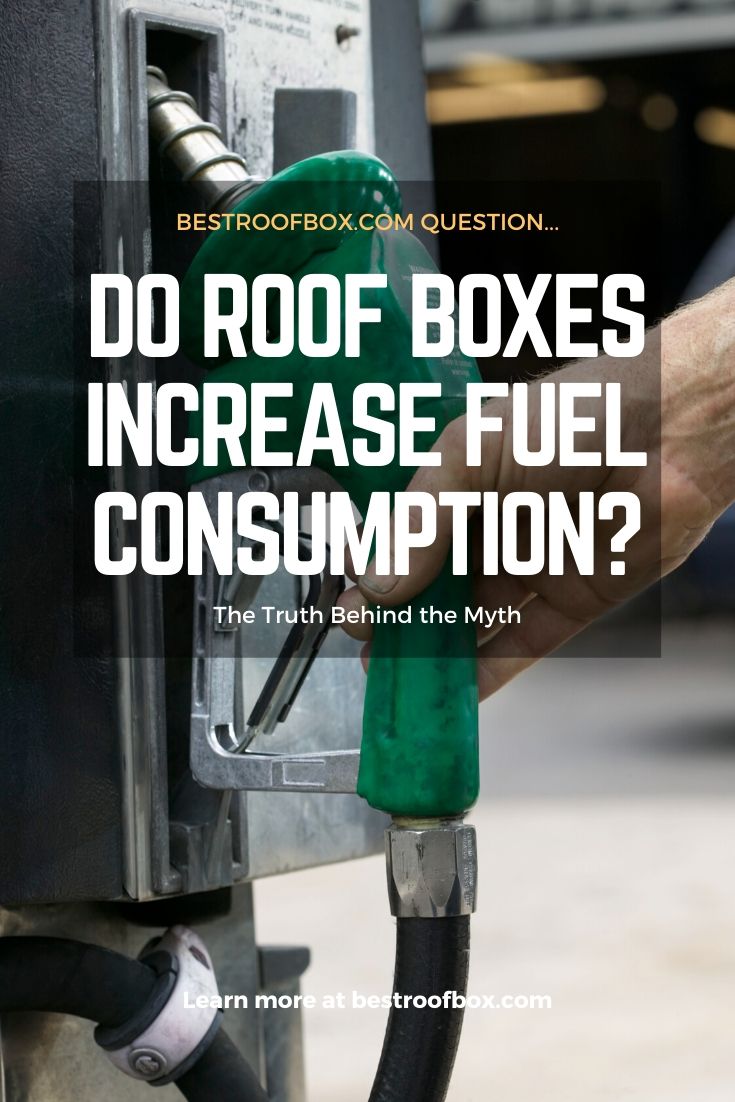 A rooftop carrier on your vehicle is a convenient thing to own, but if you’re concerned about the effect these carriers have on your gas mileage, you’re not alone. In fact, many people do notice a difference in their gas mileage once they install a roof rack, a rooftop bag, or a rooftop box.
A rooftop carrier on your vehicle is a convenient thing to own, but if you’re concerned about the effect these carriers have on your gas mileage, you’re not alone. In fact, many people do notice a difference in their gas mileage once they install a roof rack, a rooftop bag, or a rooftop box.
This is because there is extra weight on top of your vehicle and the aerodynamics of the vehicle have changed.
Having a rooftop carrier also causes a lot of drag even when wind resistance is good, making it more difficult for you to save money on gas once a carrier is installed on your vehicle’s roof.
Table of Contents
Rooftop Carriers Serve Many Purposes
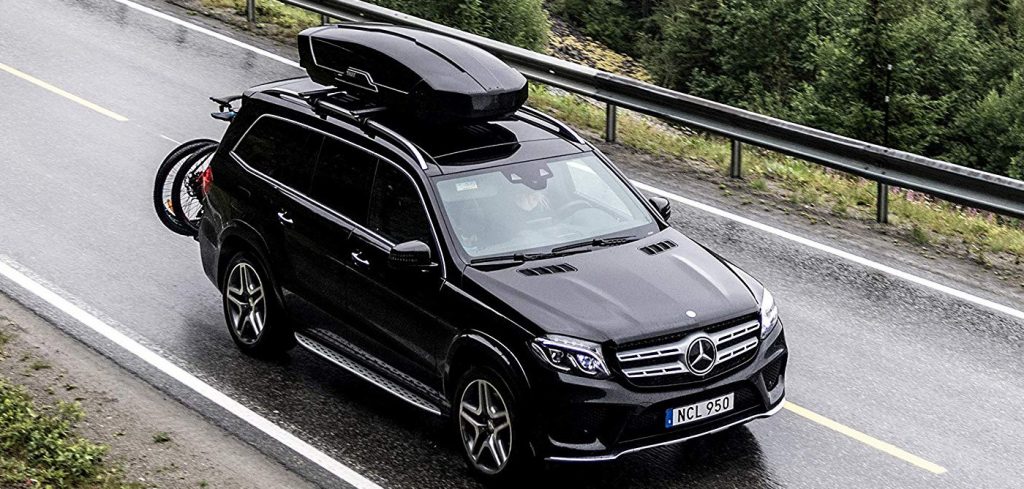
Rooftop carriers can be hard-shell boxes or soft bags, but they are both designed to carry extra items with you when you’re heading out to the ski resort or fishing camp.
These devices can hold skis, snowboards, fishing rods, and many other items, and some can even be installed without installing a roof rack first.
In fact, it is now easier than ever to find a rooftop carrier that can basically be strapped onto the top of your vehicle, meaning you won’t have to attach a permanent roof rack just to have a rooftop carrier on your vehicle.
Most rooftop carriers are also designed to fit a variety of vehicle makes and models, so you won’t have to search for long just to get one that perfectly fits your car.
Once it’s there, you can keep it on permanently or remove it whenever it isn’t being used, but when it comes to gas mileage, it is always better to remove your rooftop carrier whenever you’re not planning to use it for a while.
Do Roof Boxes Increase Fuel Consumption?
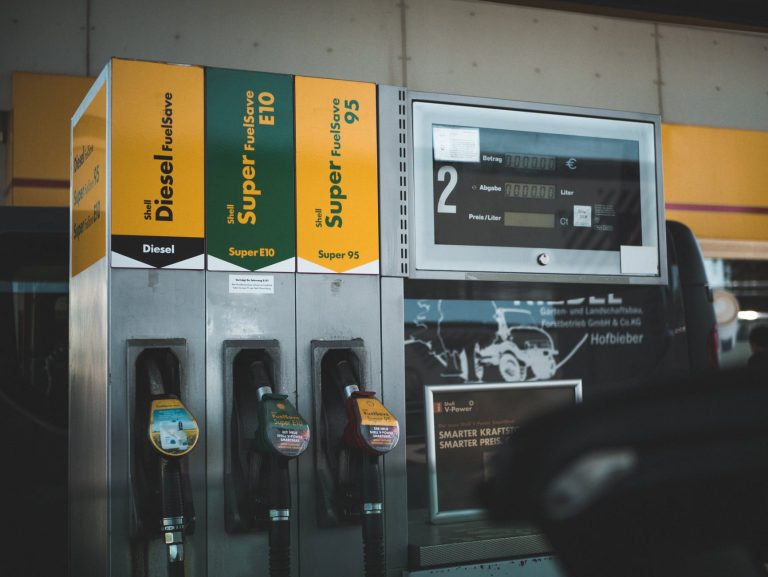
Many things can affect the gas mileage you get on your vehicle, and one of these things is a rooftop carrier on the top of your car. If you’re thinking a carrier will increase fuel consumption, you are absolutely right.
Fuel consumption is directly affected by drag
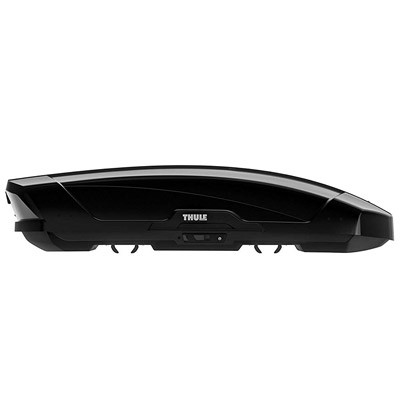 Fuel consumption is directly affected by drag, and adding any amount of weight to your vehicle will always cause it to drag more, causing you to use more gas and suffer with less-than-perfect gas mileage.
Fuel consumption is directly affected by drag, and adding any amount of weight to your vehicle will always cause it to drag more, causing you to use more gas and suffer with less-than-perfect gas mileage.
In fact, even extra weight inside of your vehicle can increase the amount of fuel your car consumes because it doesn’t matter where the extra weight is – it only matters that it’s there.
Of course, there are other things that can affect your fuel consumption, including the size and design of the rooftop carrier.
Some of these carriers are specifically designed to slow down your fuel consumption and let you enjoy better gas mileage, but overall, having a rooftop carrier is always going to make you use more fuel in the end.
Air flow also affects fuel consumption
Air flow also affects fuel consumption, and when you add a rooftop carrier your vehicle becomes a little “boxier,” which means the air won’t flow as well over the top of the vehicle and, therefore, your gas mileage will be a little worse.
So, in essence, you will always increase fuel consumption whenever you have a rooftop carrier installed; the question is just how much this consumption will be affected.
For example, let’s say you get roughly 30 miles to the gallon with your current vehicle, then you install a full-sized rooftop carrier to the top of your car. In this instance, it is possible for your gas mileage to go down to roughly 24 or 25 miles per gallon, which can cost you a lot of money over time.
Size and design
The size and design of the carrier is always going to affect how much extra fuel is used, but suffice to say that even when you have a smaller carrier attached to your car, your gas mileage will always go down.
In fact, even if your rooftop carrier is empty and contains no items inside, it can still bring your gas mileage down by roughly 5 miles per gallon.
This means that getting 25 miles to the gallon can easily change to 20 miles to the gallon if you have a rooftop carrier on your vehicle that is sitting empty.
As you can see, a rooftop carrier always directly affects your gas mileage, which is something to take into consideration when you’re deciding if a rooftop carrier is a good idea.
Can You Do Anything About Bad Gas Mileage?
 Although most rooftop carriers do increase fuel consumption in your vehicle, there are still things you can do to improve your gas mileage so it isn’t as bad. For one thing, you can drive no higher than the posted speed limits, or maybe even five miles below the limit.
Although most rooftop carriers do increase fuel consumption in your vehicle, there are still things you can do to improve your gas mileage so it isn’t as bad. For one thing, you can drive no higher than the posted speed limits, or maybe even five miles below the limit.
The lower your driving speed, the lower the drag and the better the overall gas mileage, so using caution when driving with a rooftop carrier is always recommended.
If the manufacturer of your rooftop carrier suggests a certain speed limit or makes other recommendations regarding getting better gas mileage, it is best to adhere to those recommendations because over time, it can save you a lot of money.
Losing a little bit of gas because of your rooftop carrier may not seem significant, but it can make a big difference if you lose gas on a regular basis. After all, it adds up quickly.
Aerodynamically Designed Rooftop Carriers
Because aerodynamically designed rooftop carriers generally provide better gas mileage for your vehicle, you may want to look for this type of carrier when shopping for one. Below are a few of those carriers, which means they won’t increase fuel consumption as much as other types of carriers do.
Our Favourite Aerodynamically Designed Rooftop Carriers


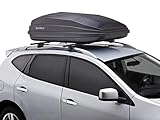



Last update on 2025-11-12 / Affiliate links / Images from Amazon Product Advertising API
1: Yakima SkyBox for Cars and SUVs
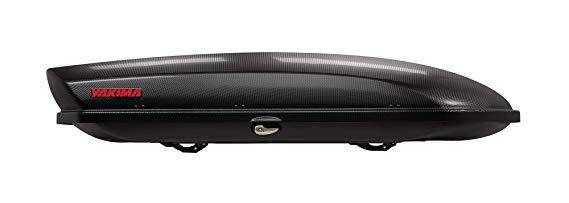 With a sleek Carbonite textured look, this cargo carrier can be installed without using any tools, and it even comes with locks to keep your things extra secure.
With a sleek Carbonite textured look, this cargo carrier can be installed without using any tools, and it even comes with locks to keep your things extra secure.
It isn’t one of the least expensive rooftop carriers on the market, but it is certainly one of the most efficient – not to mention one of the most attractive.
It even comes in a slick-looking black color that matches any car’s design.
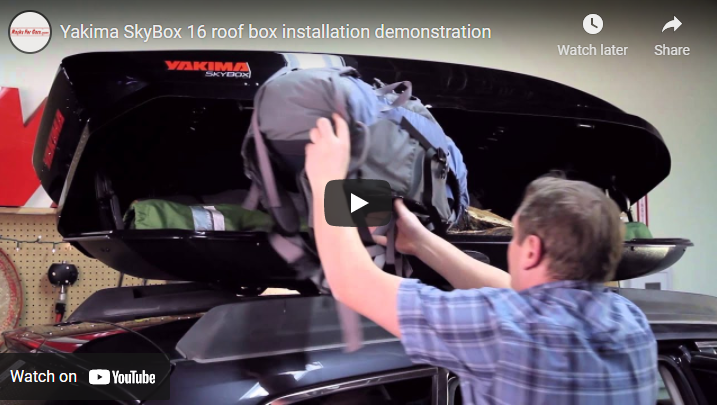
2: GoPlus Cargo Box
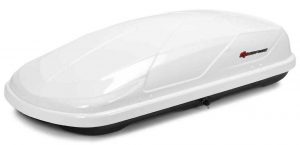 With an impressive 14-cubic-foot size, this cargo carrier is also waterproof and provides both less drag and a much quieter ride.
With an impressive 14-cubic-foot size, this cargo carrier is also waterproof and provides both less drag and a much quieter ride.
It is available in black, white, or gray, and it even has a double-lock system for extra secure storage. This carrier is made out of heavy-duty ABS and PC materials for extra durability and is super simple to install, even for people who are not mechanically inclined. It is also priced at under $500.
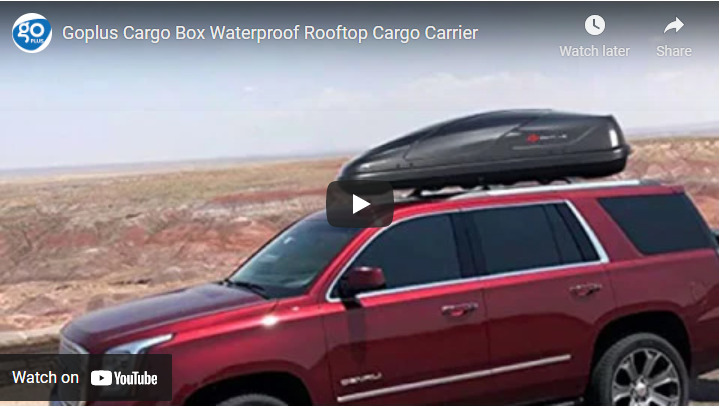
3: Thule Pulse Rooftop cargo box
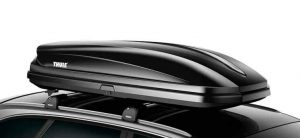 Available in three different sizes that can accommodate up to 16 cubic feet of space, it offers passenger-side loading for easy and fast operation and even comes with a high-quality locking system that keeps all of your gear and other items dry and secure.
Available in three different sizes that can accommodate up to 16 cubic feet of space, it offers passenger-side loading for easy and fast operation and even comes with a high-quality locking system that keeps all of your gear and other items dry and secure.
Installation is a breeze, and you can load up to 110 lbs. worth of items on the inside. It is also easy to afford regardless of your budget.
4: SportRack Vista XL cargo carrier
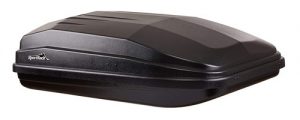 This carrier comes with its own hardware to install it properly, and it even includes a lock to keep the items inside nice and secure the whole time.
This carrier comes with its own hardware to install it properly, and it even includes a lock to keep the items inside nice and secure the whole time.
It opens in the rear for easy accessibility, and its ABS materials make it UV-resistant and built to last. You can also purchase this carrier for a little more than $400, making it one very reasonably priced rooftop carrier.
5: LT Sport rooftop carrier bag
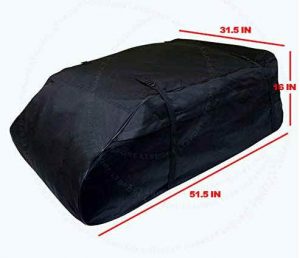 This one is a little less expensive than the others at under $50, but it is a high-quality bag-type carrier that can hold up to 50 lbs. of gear.
This one is a little less expensive than the others at under $50, but it is a high-quality bag-type carrier that can hold up to 50 lbs. of gear.
Although it does require a vehicle with roof racks, the LT Sport cargo carrier can be installed easily and quickly without any permanent drilling.
It is also waterproof and does a great job of keeping your items secure as you drive to your destination.

Conclusion
Once you do the numbers, it is easy to see that cargo carriers do indeed increase fuel consumption; in fact, they can increase fuel consumption from 20% to 35% total, which means a lot of extra money at the gas pump. If you wish to get better gas mileage, you can do one or both of the following:
- Drive slower – at the speed limit or slightly below
- Choose a cargo carrier that is smaller and aerodynamically designed
Remember that lightweight, streamlined cargo carriers do a much better job with air flow and drag, which naturally gives them an edge so that you can get better gas mileage from beginning to end. Removing your carrier when it isn’t being used can also help, because even permanent racks won’t cause you to use a lot of extra gas when you’re driving from one place to another.
Bigger carriers have more surface area and, therefore, the increase in gas consumption is going to be greater. Although all carriers will affect your gas mileage in a negative way, there are still things you can do to make things a little easier on yourself, and it all starts with choosing the right type of carrier.
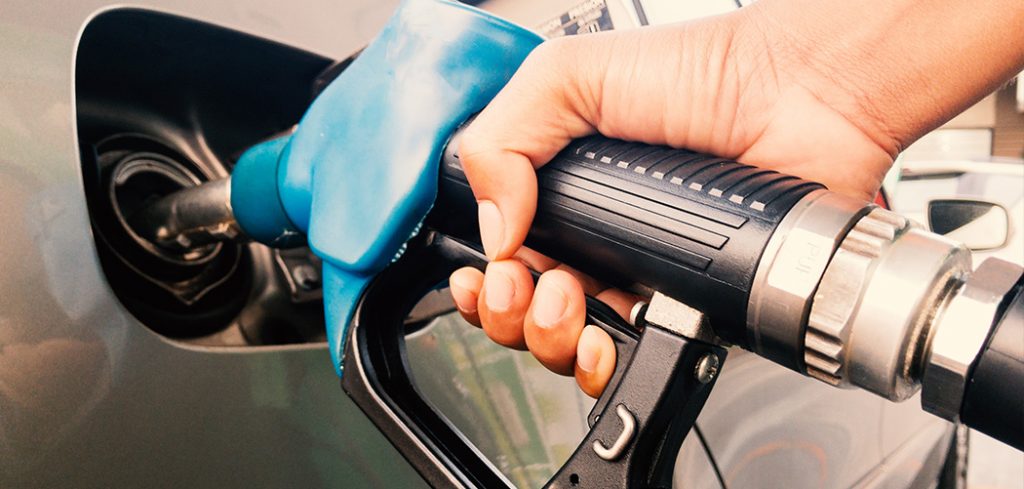
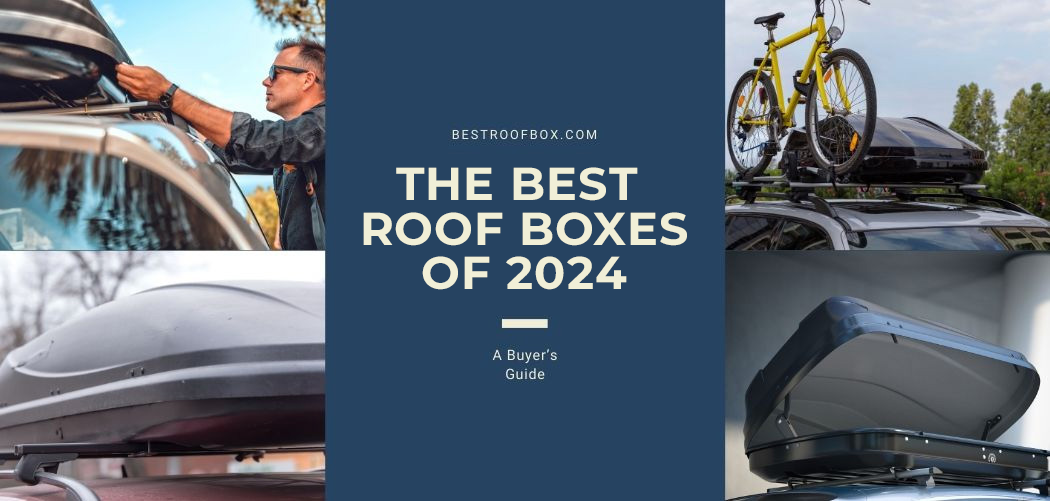

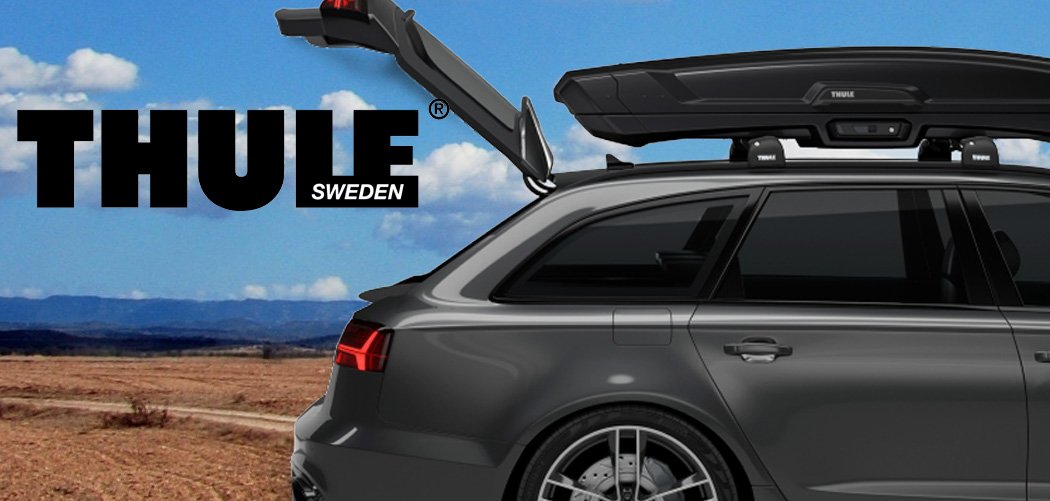
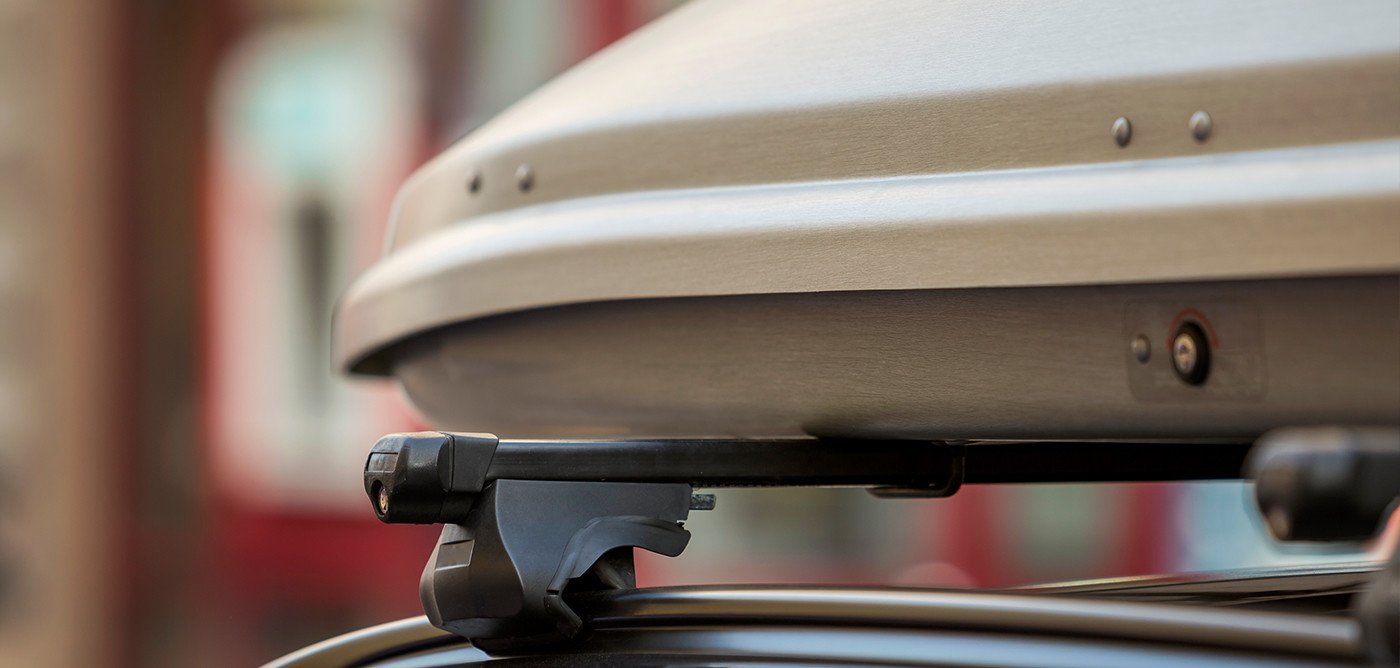


2 thoughts on “Do Roof Boxes Increase Fuel Consumption?”
Thanks a lot for this article! Every year I go out on vacations with a roof cargo box that I had fro a few years now. It seems to be a generic one, no recognizable brand on it. It still does the job, but if I should get one of the boxes you mention here, what would be the winner from your perspective?
Thanks in advance!
The Sportrack or the Thule are both excellent 🙂
Comments are closed.